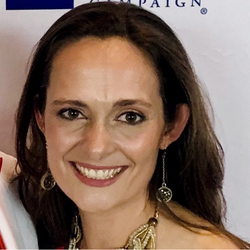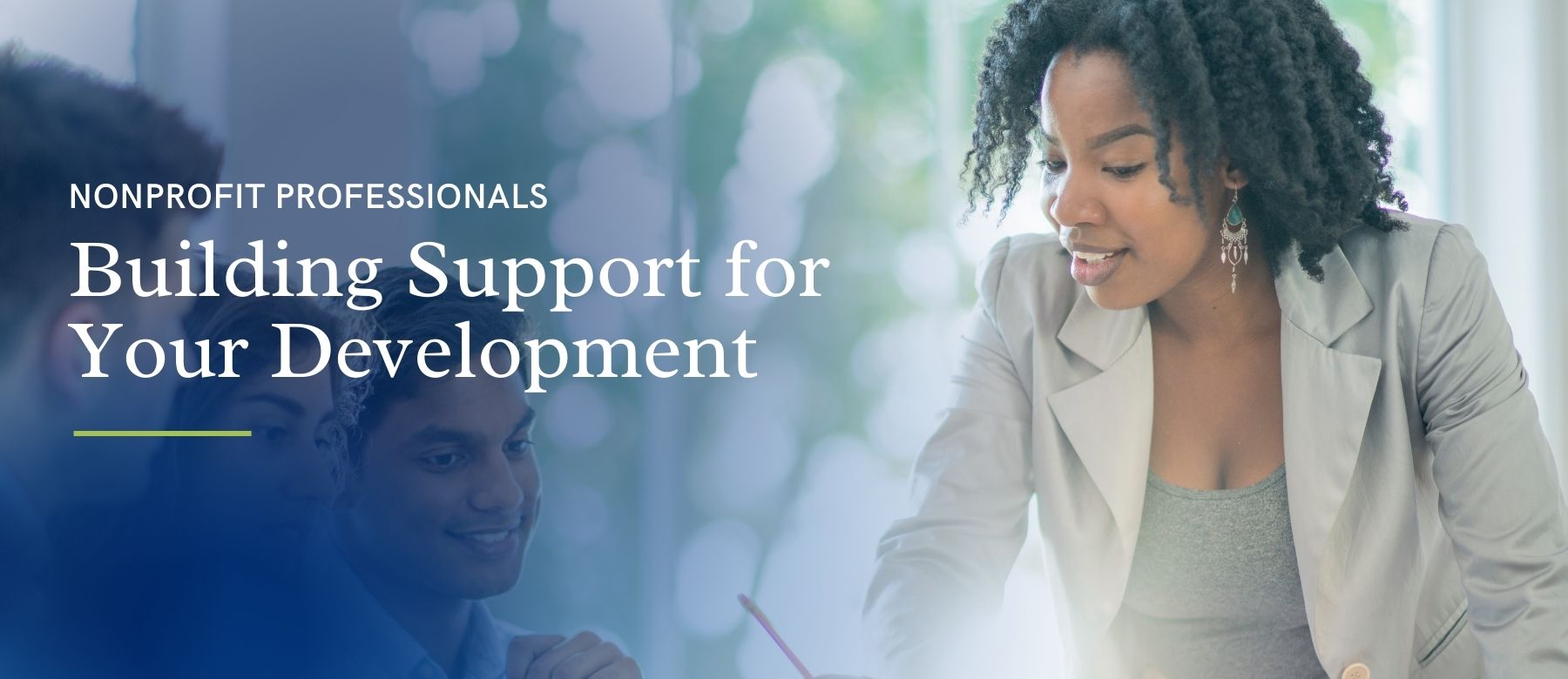There’s a parable passed along in the business world that starts with a chief financial officer and a chief executive officer discussing their proposed annual budget. The CFO notes the generous allotment to staff development and asks, “What happens if we invest all of this in our people and they leave?” The CEO responds, “But what if we don’t...and they stay?”
Recent data shows nonprofit professionals probably won’t stay if their organizations won’t invest in them. A 2019 survey by NonprofitHR found that the most common impetus by far for voluntary departures from nonprofit roles is the “lack of opportunity for upward mobility/career growth” within their organizations. When nonprofit organizations invest in their people by offering them professional development that aligns with long-term career goals, they increase the likelihood that their employees will stay, grow and achieve within and beyond their current roles.
So how do you make the case to your board to budget for professional development?
First, plan ahead. Nonprofit organizations typically draft their budgets anywhere from one to six months ahead of the meeting when it is approved by the board of directors. If you are seeking professional development or if you are making the case for a member of your team to receive professional development, you need to know at least that far in advance what kinds of programs you’re looking for and how much they cost. If you try to ask after their budget is already approved, you may hear that it’s literally “not in the budget” even if only because there was never a chance to write it in!
Second, seek out additional sources of support. Once you’ve determined the professional development opportunity which would most benefit you or your team member, you’ll want to start seeking sources of financial support, whether they come from within or outside your nonprofit. Start with the organization that is hosting the program – they may have scholarship dollars available to offset the costs of the program and they often have partnerships with professional organizations, such as the Association of Fundraising Professionals, which provide discounts to participants (both are true at the Center for Philanthropy & Nonprofit Leadership). You may also have a relationship with a funder who values capacity-building and would be willing to entertain a new grant or an expansion of an existing one to support professional development. And of course you may actually have the dollars within your organization but need to make the case to allocate them toward this effort versus some other organizational priority.
Finally, demonstrate the return. Once you know the professional development opportunities you seek and have an idea of how to cover the costs, you are ready to take your plan to the board. Be prepared to make the case for how this program will benefit the organization in the short-, mid- and long-term, specifically as it relates to the participant’s current role, the overall mission of the organization and your organization’s potential to create a work environment where people thrive. Make sure to report back to the board once the development opportunity is complete to share what was learned and to build the foundation for future professional development requests.
Are you trying to build professional development capacity for yourself or your team? Let us know how we can help! Email cpnl@rice.edu and we can get started.
About the Author

Center for Philanthropy & Nonprofit Leadership
Associate Director
Leslie C. Wang, MBA, is the associate director of the Center for Philanthropy & Nonprofit Leadership at Rice University. Ms. Wang came to Houston through Teach for America and taught fifth grade at Oates Elementary. She later received an MBA from The University of Texas at Austin, where she focused her studies on nonprofit management. She served as a program officer at Houston Endowment for close to a decade. During that time she developed a strong network among the nonprofit and philanthropic community, along with a deep understanding of the challenges and opportunities that drive the nonprofit sector. At the Center she acts as the principal instructor for the Leadership in Action Certificate program - a hands-on, workshop-based certificate series for new nonprofit leaders - and supports additional professional development opportunities in management and governance.
The Center for Philanthropy & Nonprofit Leadership provides professional development instruction and consulting for nonprofits as they strengthen their leadership, staffing, governance, finance and fundraising capacity. We offer online and in-person courses for individuals and customized engagements for nonprofit organizations. Learn more at cpnl.rice.edu.
Read Next
On the Blog: The Center for Philanthropy & Nonprofit Leadership Portfolio
On the Blog: Which nonprofit leadership certificate is right for you?
Impact Report: Give Back. Move Forward.

